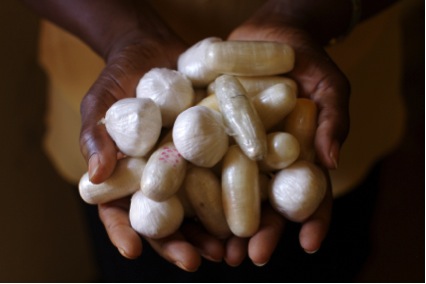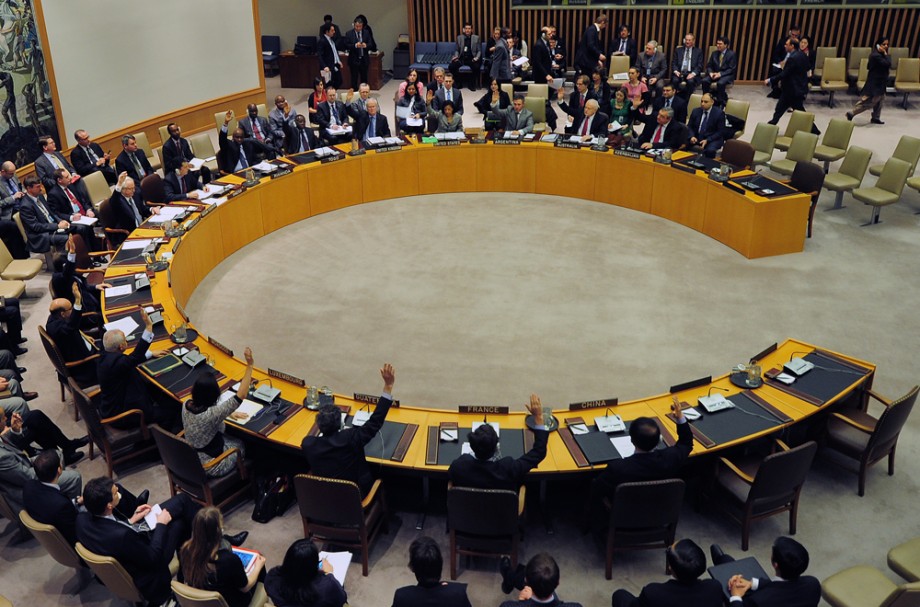In April 2012, eleven military leaders involved in the coup d´état in Guinea-Bissau were subjected to a UN travel ban. Although neatly in line with United Nations (UN) sanctions policy regarding sovereignty, in reality the sanctions were a painstakingly late reaction to the uprising of Guinea-Bissau as Africa´s first “narco-state”, which had been corroding politics and society for almost a decade. While institutions kept the Sanctions Committee hostage, the kingpins in Guinea-Bissau had plenty of time to ruin its governance structures. This analysis suggests that Guinea-Bissau only became a target of UN sanctions when it had made its way on the map as the first African “narco-state”. Unfortunately, the coup that justified UN agency to do something about it came almost a decade too late.
On the first of April 2012, just a few days before the second round of a presidential election, a military coup led by Admiral Bubo Na Chuto and Deputy Chief of Staff or the army Antonio Indjai triggered the United Nations Security Council (UNSC) to impose travel sanctions on 11 military leaders involved in the coup.
If reversing the coup were the most important objective, the sanctions could probably be called a success. In May 2014, albeit after several delays, a new president (Jose Mario Vaz) was indeed elected in Guinea-Bissau. Also the committee recognised only one violation of the travel ban (the army chief of staff travelled to Cote d´Ivoire and Senegal on one occasion). For the moment the country enjoys relative political stability, although it still suffers from a range of structural threats such as extreme poverty and high corruption levels.
In any way, the coup d´état is largely irrelevant to the story, as the case of sanctions on Guinea-Bissau can hardly be explained as a genuine reaction to it. Guinea-Bissau has been the stage of many coups over the past decades (as have several other African states), and no one ever really bothered.
The coups of Bissau and the Rise of Africa´s first “Narco-State”
Since its Independence from Portugal in 1974, Guinea-Bissau has been the stage of four coup d´état´s and at least 6 other attempts. However, being an insignificant West African country home to less than 2 million inhabitants and with no strategic interest to the rest of the world, it was never important enough to make international headlines.
In 1980 Joao Bernardo Vieira staged the first coup, ousting the country´s first president Luis Cabral and allowing him to rule for the next 19 years. In 1998 another coup attempt split the government forces (supported by neighbouring countries) and coup leaders, who controlled large parts of the army. After 11 months of civil conflict and thousands of deaths, president Vieira was toppled and replaced. The next president, Kumba Yala, lasted for three years before he too was overthrown in 2003 in a military coup. After some tumultuous years, ex-president Vieira made a comeback from being exiled in Portugal and manages to win the 2005 elections. In 2009 he was assassinated by renegade soldiers. None of these events however ignited the urge to install a sanctions regime.
So for the last decades the coups in Guinea-Bissau went largely unnoticed, just as in many other countries that have lived through coup d´états without being targeted by UN sanctions. As long as coup d´états do not turn into bloody civil wars those who stage them tend to stay out of trouble.
So what made the international community change its mind? Since the mid-2000s media coverage on Guinea-Bissau, although still meagre, has become dominated by the issue of drug trafficking. As a small state with weak political infrastructure, high levels of poverty and corruption, and a favourable geography, Guinea-Bissau has turned out to be a perfect place for trafficking drugs from Latin America destined for the European market. The country´s Atlantic coastline is dotted with two dozen little islands that have proven comfortable smuggling havens for Colombian, Ecuadorian, Peruvian, Brazilian and Venezuelan drug cartels that smuggle cocaine into Europe.
In 2008 a report by the United Nations Office on Drugs and Crime (UNODC) recognised Guinea-Bissau as a new hub for cocaine trafficking in West Africa. Between 2005 and 2007 a total of 33 tons of cocaine were intercepted in West Africa on route to Europe, compared to a mere 1 ton prior to 2005. With the drug trafficking increasingly penetrating into Guinean society and politics, the peace building and democratisation efforts of the UN peace-building mission in Guinea-Bissau (UNIOGBIS) were largely undermined. The trafficking business negatively affected public security, respect for the rule of law, and public health (because of increased local consumption). Politics became increasingly corrupted, with politicians and military leaders being involved.
As the situation worsened in 2010 and 2011, donors retrieved and the European Union (EU) decided to stop training Guinean security forces and suspends part of its aid. The United States froze the assets of two drug-traffickers, and the UNODC and Interpol helped Guinea-Bissau set up a Transnational Crimes Unit. In the meantime the two alleged drug kingpins subjected to US asset freezes were promoted to Army Chief (Antonio Indjai) and head of the Navy (Jose Americo Bubo Na Tchuto). Tchuto was arrested by the American Drug Enforcement Agency (DEA) in international waters on 4 April 2012 (8 days before the coup) and is currently on trial. Indjai has also been indicted by the United States but still walks free in Bissau. On 12 April 2012, when the military toppled the interim government, Indjai was placed on the UN travel ban list along with 10 other military officials.
How institutions strangle effective sanctions policy
Guinea-Bissau´s timeline shows a variety of coup d´états and attempted coups, none of which seemed important enough to arouse real attention. When the country increasingly turned into a cocaine transfer-port and a weak state, it became clear something had to be done in order to protect the interests of those suffering from this trade. However, imposing UN sanctions on a sovereign state in reaction to smuggling activities was not a policy option. So the only option was to wait for a ´legitimate´ excuse, such as a civil war, a terrorist attack, or indeed a military coup.
Coup d´états have been an accepted imperative for UN sanctions since the early 1990s and the sanctions regime on Haiti to reinstall President Aristide, who was ousted in a military coup in 1991. In the late 1990s the UN Sanctions Committee also increased the technical and legal capacity to impose targeted sanctions on individuals. Since 1999 the UN has imposed and implemented asset freezes and travel sanctions on individuals and groups in over a dozen conflicts, with mixed success. However, when it comes to reversing coup d´états, the case of Guinea-Bissau is the first one since that of Haiti in the early 1990s.
During the coups of 1999 and 2003 and the assassination of Vieira in 2009, the UN Security Council and the Sanctions Committee had all the technical capacity and institutional consensus to interfere with the internal politics of Guinea-Bissau. However, apparently the coup d´états in an insignificant country such as Guinea-Bissau were not important enough to arouse sufficient attention in the UNSC. With the 2012 coup the UNSC finally had a legal excuse to impose sanctions on the individuals implicated in the drug trafficking. However, by then Guinea-Bissau had already become fully integrated in the drug-cartel; the damage had already been done.
The case of Guinea-Bissau shows that the reality of UN sanctions as an institution is one of restrictions and obstacles rather than one about values and norms. The sanctions were clearly a reaction to the drug trafficking that had been undermining Bissau-Guinean politics and society since 2005 or longer. However, in order to impose sanctions they first needed a coup d´état to take place. Unfortunately that coup didn´t come until 2012, when Guinea-Bissau´s transformation to “narco-state” had already been completed and had thoroughly disrupted and corrupted governance.
Would things have turned out different if the UN had imposed sanctions earlier? Perhaps not; UN travel bans are not almighty tools of political coercion. However, the case of Guinea-Bissau does show how institutionalised rules regarding sanctions policy can delay and distort effective decision-making. If those actors interested in pursuing drug-kingpins (US, EU) just transparently put forward their interests and security concerns, rather than waiting for a coup d´état to take place to justify their actions, it would be much easier for analysts to keep oversight and for actors to take timely action.


